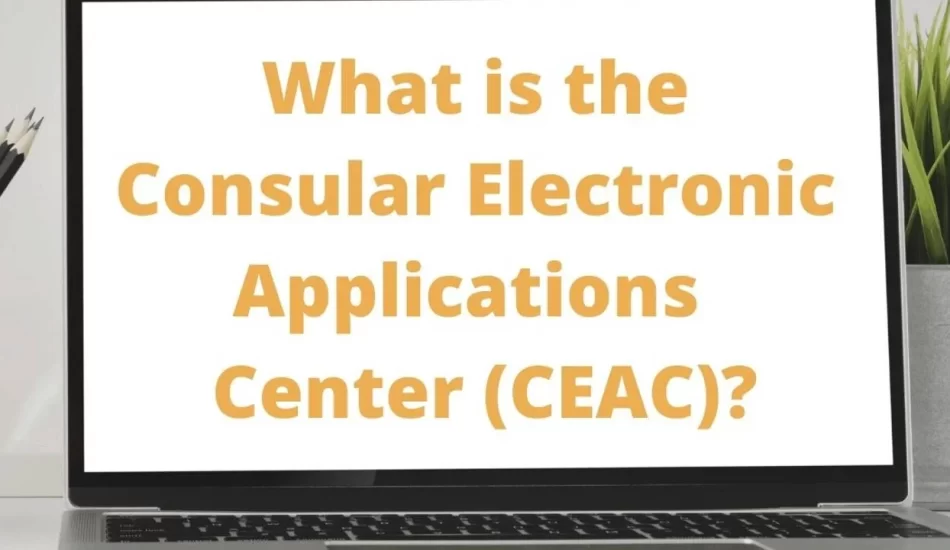What is CEAC?

The Department of State is responsible for processing immigrant visa applications after USCIS approves the initial I-130 form (Petition for Alien Relative). After the I-130 has been processed and accepted, USCIS will send the approved petition to the National Visa Center (NVC), an agency within the Department of State. At this stage, applicants will need to familiarize themselves with the NVC’s “Consular Electronic Application Center,” or CEAC.
CEAC is how the National Visa Center collects information and documents and communicates with visa applicants. In the past, NVC processing was done via mail and telephone, but within the last few years, all application services were moved online.
The following services are handled via CEAC:
- Electronic payment of Affidavit of Support fee and DS-260 fee (via ACH withdrawal);
- Completion of DS-260 form;
- Submission of I-864 and I-864A Affidavit of Support form(s);
- Submission of required official documents, including police certificate(s), marriage certificate(s), birth and death certificate(s), and divorce decree(s);
- Submission of supporting financial documentation, including tax returns, W2s, pay stubs, and bank statements;
- Submission of proof of residency and domicile documents.
Once everything has been submitted to and approved by the NVC through CEAC, the NVC will issue a notice to the applicant stating that their application is “Documentarily Qualified” for interview scheduling. At this stage, the NVC will work with the US embassy or consulate in the applicant’s home country to schedule a visa interview appointment. Notification of the scheduled interview will be sent via email through CEAC to the applicant and their legal representative, if any.
Following the interview, applicants can check their case status through CEAC. In most cases, the status will either show “approved” or “refused.” It is important to note that “refused” statuses can mean that the visa was not initially issued following the interview, but that the case can be approved once additional information or documents are received (see here for a recent update about the “refused” case status). In this case, applicants will be informed that their case is undergoing “administrative processing” or will be given a detailed request for documents to provide to the embassy or consulate at a later date.
Overall, the NVC’s switch to online services has helped to streamline the immigrant visa application process, but it has also created some issues and frustrations for applicants and their attorneys. With all processing taking place online, applicants must be somewhat tech savvy and must regularly check their email to avoid missing updates or requests from CEAC. Even for those who are tech savvy, the online application center can be particularly difficult to use.
As a government website, it is not a surprise that the website does not always work perfectly. While it is an extremely safe and encrypted site, users frequently report glitches, broken links, and page timeouts. If issues or questions arise, applicants can reach out to the NVC via their online portal, Ask NVC, for help.
